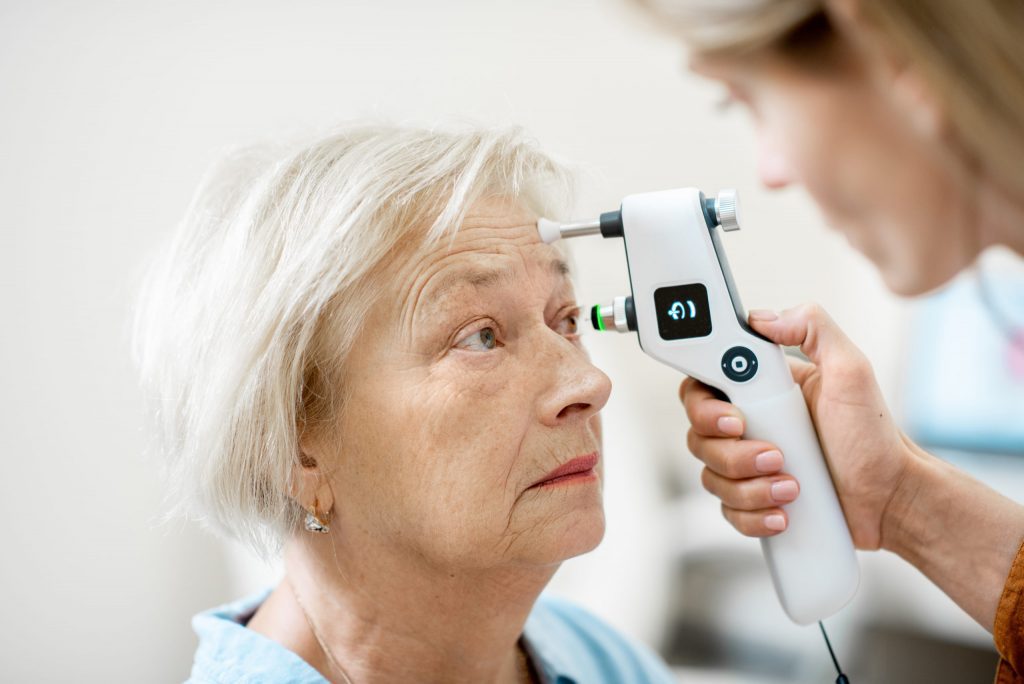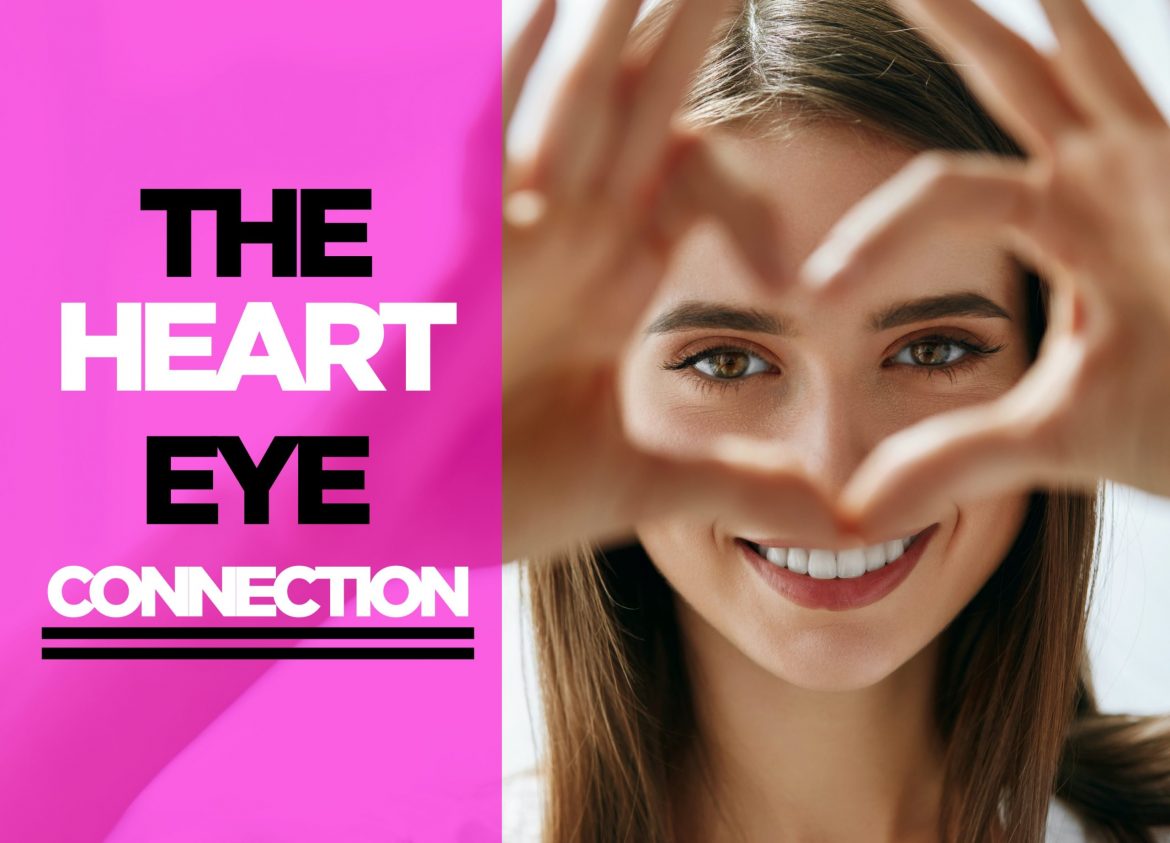![]()
We know the eyes are the window to the soul, but did you know they are also the window to your health, specifically your cardiovascular health? New research published in the American Journal of Medicine recently found a distinct correlation between the health of your eyes and the health of your heart.
Specifically, researchers found that approximately half of the nearly 2.2 billion cases of vision impairment worldwide could be improved, or even prevented, by taking simple steps to improve your overall cardiovascular health.
In addition, doctors have learned that a regular annual eye exam is the most reliable, non-invasive way to identify a number of serious—often fatal—cardiovascular conditions such as high blood pressure, high cholesterol, and diabetes.
The eye-heart health connection
So, what’s the connection between your eyes and the health of your heart?
The answer lies in what your eye doctor observes during your exam. As you know, your optometrist assesses your visual acuity and peripheral vision and conducts a refraction exam to determine the correct prescription for your glasses or contact lenses.
When it comes to the eye-heart health connection, the test of your eye pressure is what tells the story of your overall health.

While checking your eye pressure, your eye doctor measures the topography, or surface curvature, of your cornea, as well as the health of your retina and optic nerve. These results provide detailed information that shows important changes in the blood vessels of your retina, a key indicator of abnormalities or changes in blood flow caused by changes to your heart.
In fact, an annual eye exam detects risk factors consistent with heart disease much sooner than tests and checkups conducted during an annual physical, including identifying high cholesterol 65% of the time, high blood pressure 30% of the time, and diabetes 20% of the time.
In most cases, patients are unaware of minor changes occurring in the vascular system located at the back of the eyes. Changes may include:
- Increased force against the arterial wall—a sign of hypertension
- Tiny embolisms or clots in and around the retina—a sign of blocked arteries
- Small changes in the blood vessels of the eye caused by increased blood sugar levels—an indication of diabetes
These conditions rarely produce noticeable changes in vision but often have far-ranging and serious health implications if they are not addressed.
Long-term eye health effects
Obviously, left untreated, high blood pressure, high cholesterol, and diabetes result in debilitating and even deadly outcomes, but over time they also result in specific vision issues, including age-related macular degeneration, cataracts, diabetic retinopathy, and glaucoma.
The good news is that researchers now believe, with increasing confidence, nearly 50% of all eye health issues can be improved or prevented by making heart-healthy lifestyle changes.
5 lifestyle changes for a healthy heart and vision
Quit smoking
Smoking is the most preventable cause of premature death, by far. Thousands of studies have proven smoking causes significant damage to your blood vessels and your heart health. It’s also a leading contributor to high blood pressure and contributes to increased insulin resistance and diabetes.
As smoking continues to damage blood vessels throughout the body, the tiny vessels in your eyes literally take a beating; because they are so small, they tend to weaken, constrict, and become clogged much quicker than larger vessels, leading to serious vision issues.
Learn more:
Does Your Eyesight Improve After Quitting Smoking?
Live an active lifestyle
You don’t need to run marathons but should make some sort of physical activity a part of your day, every day. Your heart and eyes are muscles, and the stronger your muscles, the better they function. Specifically, the stronger your heart, the easier it is for blood to be pumped throughout your body, including to your eyes.

In fact, in many cases, all you need to do is walk 15 to 20 minutes each day. Research consistently shows walking 15-20 minutes a day, or even for 10 minutes after each meal, lowers your blood sugar and improves blood pressure. Both are important for improving the health of your heart and eyes.
Lose weight
Being obese, or even overweight has devastating effects on your health. In fact, even being slightly overweight adds additional stress to your heart, increases blood pressure, and contributes to nearly 30% of heart disease in the U.S.
A shocking 70% of Americans are overweight, a statistic that is literally wreaking havoc on our hearts and our vision.
Eat a heart and eye-healthy diet
Research shows us that eating a healthy diet prevents heart disease, lowers cholesterol, and helps maintain a healthy weight. A healthy diet also prevents a number of conditions (many of which we’ve already discussed) that affect your vision.
A healthy diet means many things to many different folks, but at its core, a healthy diet focuses on eating more fresh fruits, vegetables, nuts, seeds, and beans, while eating less saturated fat and avoiding processed foods at all costs.
You can get as specific and detailed with a “healthy” diet as you’d like but focusing on the essentials is the key to improved heart and vision health.
Reduce your stress
You’ve heard that stress kills, right? It can cause serious damage to your heart as well as your eyesight. Exposure to stress increases your body’s production of cortisol, a.k.a. the “stress hormone.”
As cortisol-levels increase your body’s level of adrenaline increases. Research has confirmed this results in increased pressure in the back of our eye, causing vision issues to occur. Prolonged exposure to cortisol also increases your blood pressure, triglyceride levels, blood sugar levels, and cholesterol levels, which also increases pressure in your eyes and the resulting vision problems.

Some of the ways to reduce stress include exercise, yoga, meditation and deep breathing. Experiment to find the things that work for you.
Understand the importance of the eye-heart health connection
Your body is a finely-tuned machine with thousands of overlapping and interconnected processes. The connection between the health of your eyes and the health of your heart is just example of how the health of one organ can affect the health of another and can be a key indicator of your overall health.
That being said, make sure to schedule your annual eye exam and discuss the findings in detail with your optometrist.

